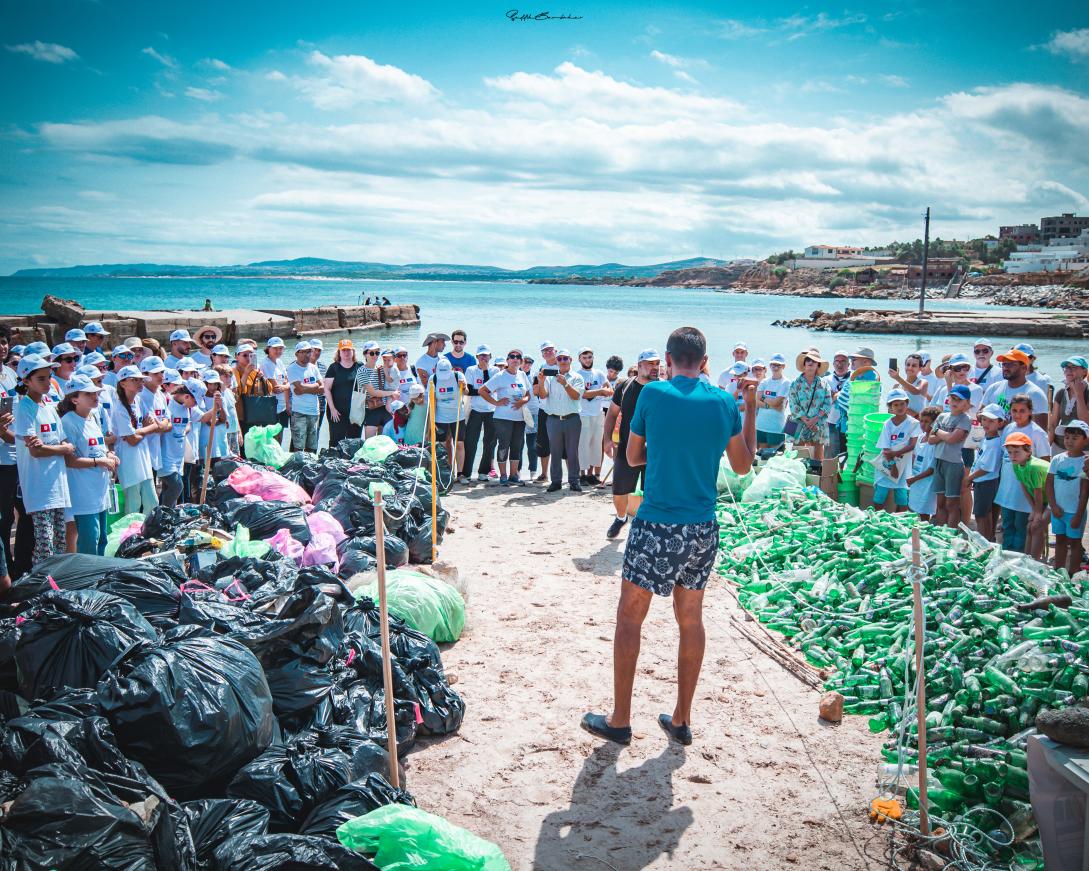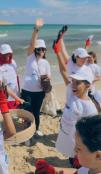EUBeachCleanUp at Cap Zbib: About 6 tonnes of waste collected in one day

|
This clean-up operation, which is organised for the 3rd successive year in Tunisia, made it possible to collect 3 tonnes of glass, 2 tonnes of non-recyclable waste and 800 kg of recyclable waste, Tunisie Recyclage Tunisie President Houssem Hamdi indicated. The sea turtle "Salouha" was released during the operation. Under a blazing sun, between 400 and 450 persons gathered on Saturday on this beach for a laborious morning. Equipped with green plastic bags for recyclable waste and black for non-recyclable waste and buckets for glass bottles, EU diplomats and officials and member countries joined in. Deputy Head of Mission of the EU Delegation in Tunisia Francisco Acosta said in a statement to TAP on the occasion, that it is deplorable to see so much dirt in a landscape that would be unique in the Mediterranean. He underlined the need to preserve this kind of site, adding that the EU's goal is not to give lessons, but to raise awareness of the need to protect the coastline. This coastline, the official pointed out, "belongs to all of us," especially as the Mediterranean is a virtually closed sea. He considered that it is necessary to focus on raising awareness and educating children in order to change their behaviour with regard to the environment. However, sanctions can help adults understand that "there is a price to pay for not respecting the environment," Acosta said. "Salouha," a 20 to 25 year old turtle, was released back into the sea at Cap Zbib, amid applause from the volunteers. This turtle, belonging to the Caretta Caretta species, was caught in a fisherman's net in Gabes. It was taken care of at the Sea Turtle First Aid Centre at the Sfax Faculty of Sciences. Sea turtles are the major victims of plastic and its residues thrown into the sea. TAP article |





